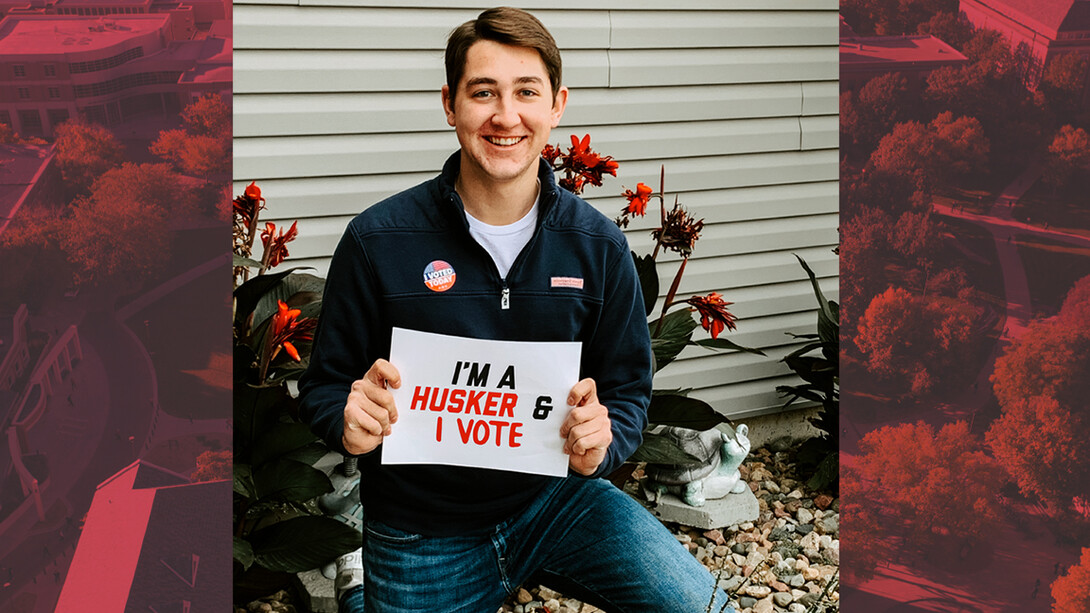
As high school junior, Cameron Collier’s interest in politics as the 2016 election played out.
Though he wasn’t old enough to vote, he was particularly interested in why people have certain political beliefs and how they change over time. And, when he turned 18, feeling a little more grown up, he was sure to register to vote as he wanted to make his voice heard.
“That feeling was a little comparable to when I turned 16 and got my driver’s license; I was that thrilled. By voting we are enacting change and that is one of the best things about being a part of a democracy.”
That desire to effect change also led the political science major to serve in the Association of Students of the University of Nebraska. Through the student government organization, Collier is able to work with fellow students to help craft legislation and create a better university for all.
As the chair of ASUN’s government liaison committee, Collier been working with the other committee members to ensure students on and off-campus are prepared for the 2020 election come Nov. 3. They’ve partnered with organizations to get students registered to vote and also to inform them, from how to request absentee ballots to info on the candidates and issues on the ballot.
Collier said the amount of campaign information available can be daunting, but that voters shouldn’t be afraid to do their own research.
“In today’s media, everywhere we look we are told who to vote for and why, but do your own research about a certain politician or even a certain topic that is on the 2020 ballot in your local area,” Collier said.
Individual research is especially important when you consider the impact a vote can make, Collier said.
“A single vote can decide whether a representative is re-elected or voted out. It can determine whether a state adopts a new policy on a certain issue that can affect your day to day life,” Collier said. “The outcome of elections affects you, whether you immediately see the results or not, and you have the chance to help decide which way those results go.”
To learn more about voting, click here.







